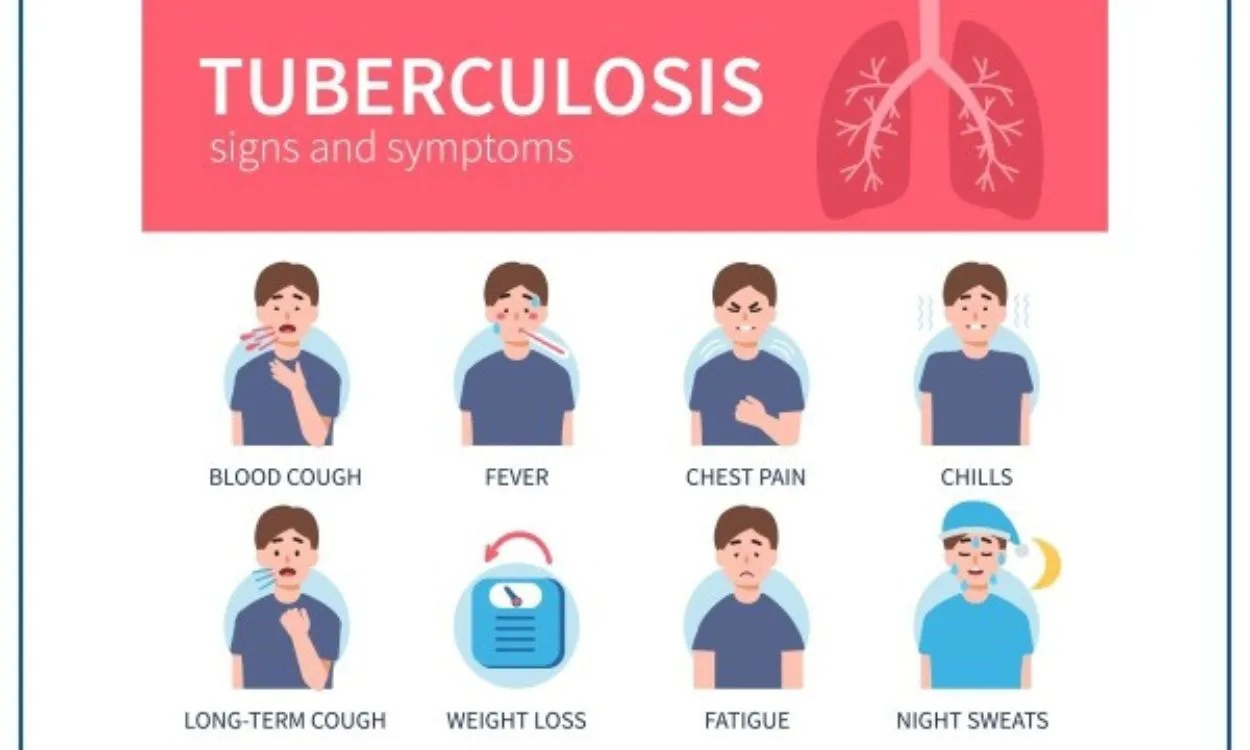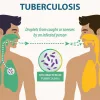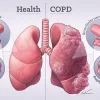Unmasking Tuberculosis: Recognizing the Signs and Symptoms
Tuberculosis (TB) is a contagious infection caused by the bacteria Mycobacterium tuberculosis. It primarily affects the lungs but can also target other parts of the body. In India, where TB remains a significant public health concern, it is crucial to raise awareness about the symptoms of this disease. Early recognition and prompt treatment can lead to better outcomes and prevent its spread. In this article, we will delve into the various symptoms of TB and discuss their implications.
Understanding Tuberculosis
Before we explore the symptoms, it is essential to understand the two main forms of TB:
- Latent TB infection: In this stage, the bacteria remain dormant in the body and do not cause any symptoms. However, individuals with latent TB can still develop active TB in the future if their immune system weakens.
- Active TB disease: This occurs when the bacteria become active and multiply, leading to the manifestation of symptoms. Active TB is contagious and poses a risk of transmission to others.
Common Symptoms of TB
- Persistent Cough: One of the hallmark symptoms of TB is a persistent cough that lasts for more than three weeks. The cough may start as a dry one and eventually produce phlegm or sputum, which can be bloody.
- Chest Pain: Individuals with TB often experience chest pain or discomfort, which may worsen during coughing or deep breathing. This sensation can be caused by inflammation and lung damage.
- Fatigue and Weakness: TB can cause a general feeling of fatigue and weakness. The infection taxes the body’s resources and can lead to decreased energy levels and significant tiredness.
- Unintentional Weight Loss: Unexplained weight loss is another common symptom of TB. Individuals may experience a loss of appetite, leading to a decrease in weight, even without attempting to do so.
- Night Sweats: Profuse sweating during sleep, particularly at night, is a classical symptom of TB. Night sweats can drench the sheets and disrupt sleep, causing further fatigue.
- Fever: Low-grade fever, typically in the late afternoon or evening, is a frequent symptom of active TB. However, it is essential to note that not all individuals with TB develop a fever.
- Breathlessness: As the infection progresses, individuals may experience breathlessness or shortness of breath. This symptom can be particularly severe during physical activity or exertion.
- Swollen Lymph Nodes: TB can cause the lymph nodes to enlarge, especially those in the neck, armpits, or groin. These swollen lymph nodes may be painless and feel like small, firm lumps under the skin.
- Other Symptoms: In some cases, TB can affect other parts of the body, leading to specific symptoms. For example, TB meningitis can cause headaches, confusion, and neck stiffness, while TB in the bones can cause joint pain and swelling.
Seeking Medical Help and Diagnosis
If you experience any of the aforementioned symptoms or suspect you may have been exposed to TB, it is crucial to seek medical assistance promptly. A healthcare provider will conduct a thorough evaluation, which may include the following:
- Physical Examination: Your doctor will examine you and listen to your lungs using a stethoscope to check for abnormal sounds.
- Tuberculin Skin Test (TST): Also known as the Mantoux test, this involves injecting a small amount of purified protein derivative (PPD) into the skin. A positive reaction indicates exposure to TB, but additional tests are necessary to confirm active disease.
- Chest X-ray: A chest X-ray can reveal abnormalities in the lungs, such as infiltrates or cavities, which may suggest TB.
- Sputum Test: This involves examining a sample of your sputum under a microscope to check for the presence of TB bacteria. It can help confirm the diagnosis of active TB.
Taking Action: Download the Fitpaa App
Recognizing the symptoms of TB is an important step towards early detection and treatment. At Fitpaa, we believe in empowering individuals to take charge of their health. Our industry-leading mobile app offers a comprehensive suite of tools and resources to support your well-being journey. With Fitpaa, you can access personalized fitness plans, expert guidance, and track your progress towards achieving your health and fitness goals. Download the Fitpaa app today and unlock a world of possibilities for a healthier, happier you.









